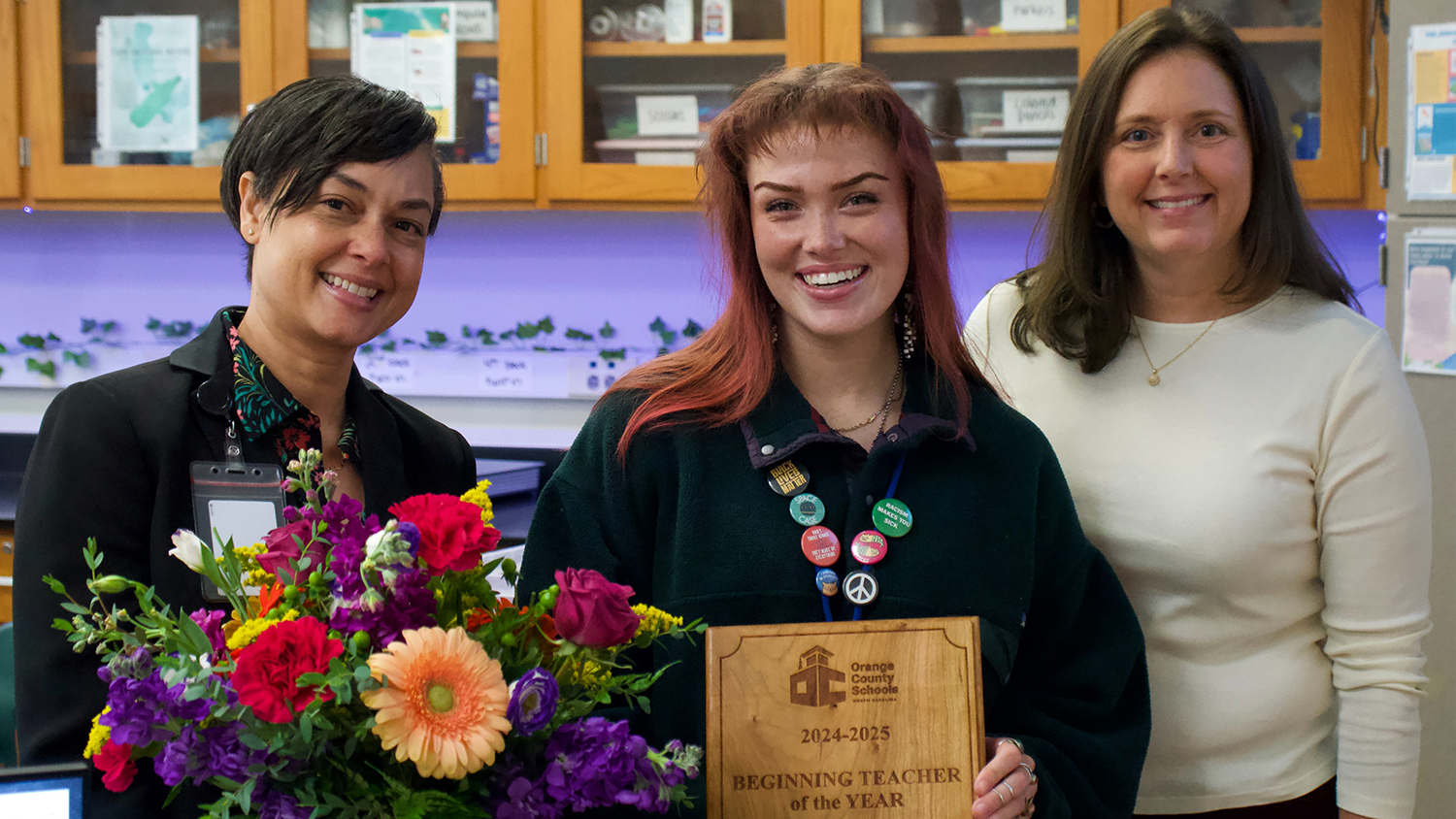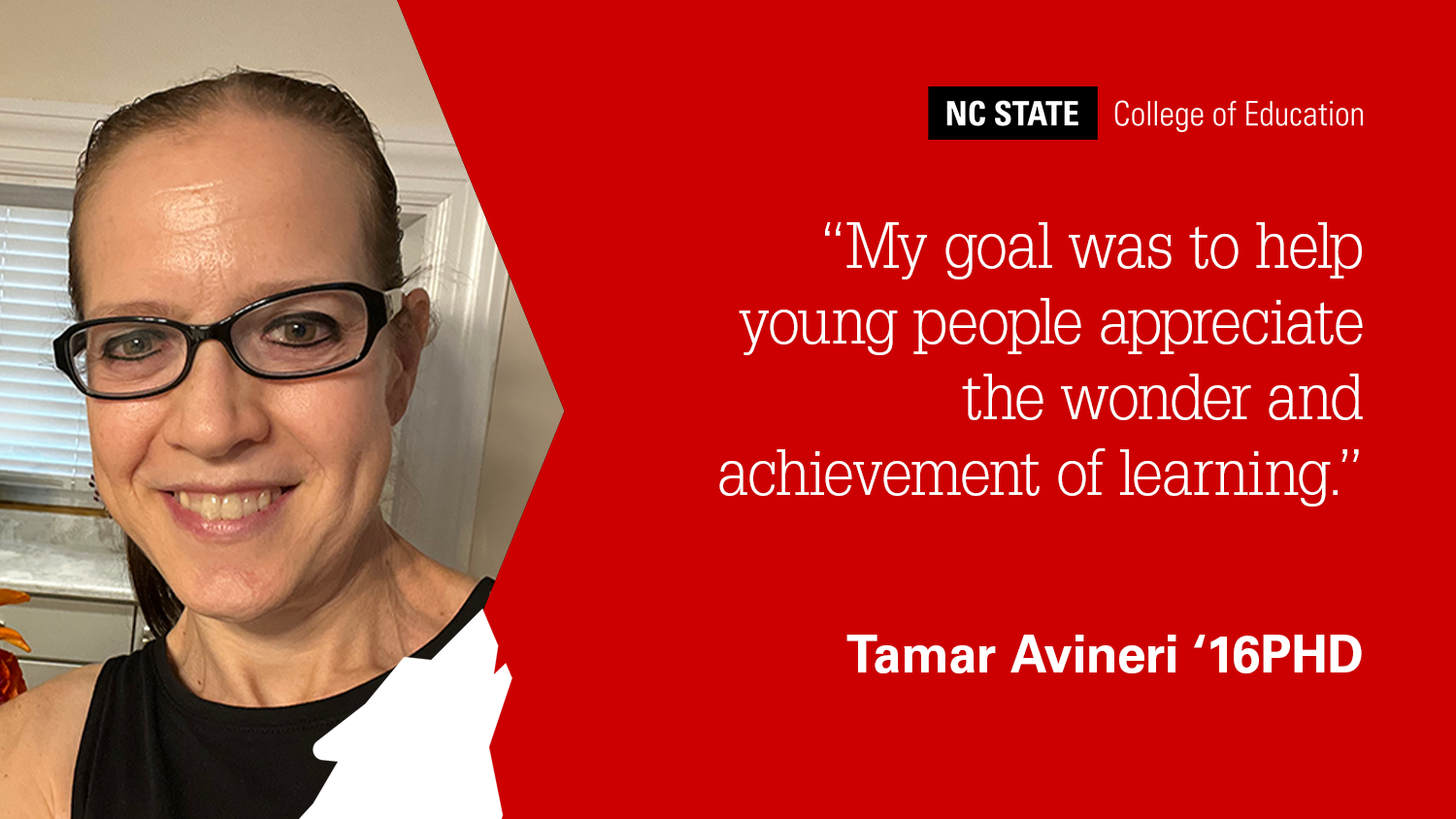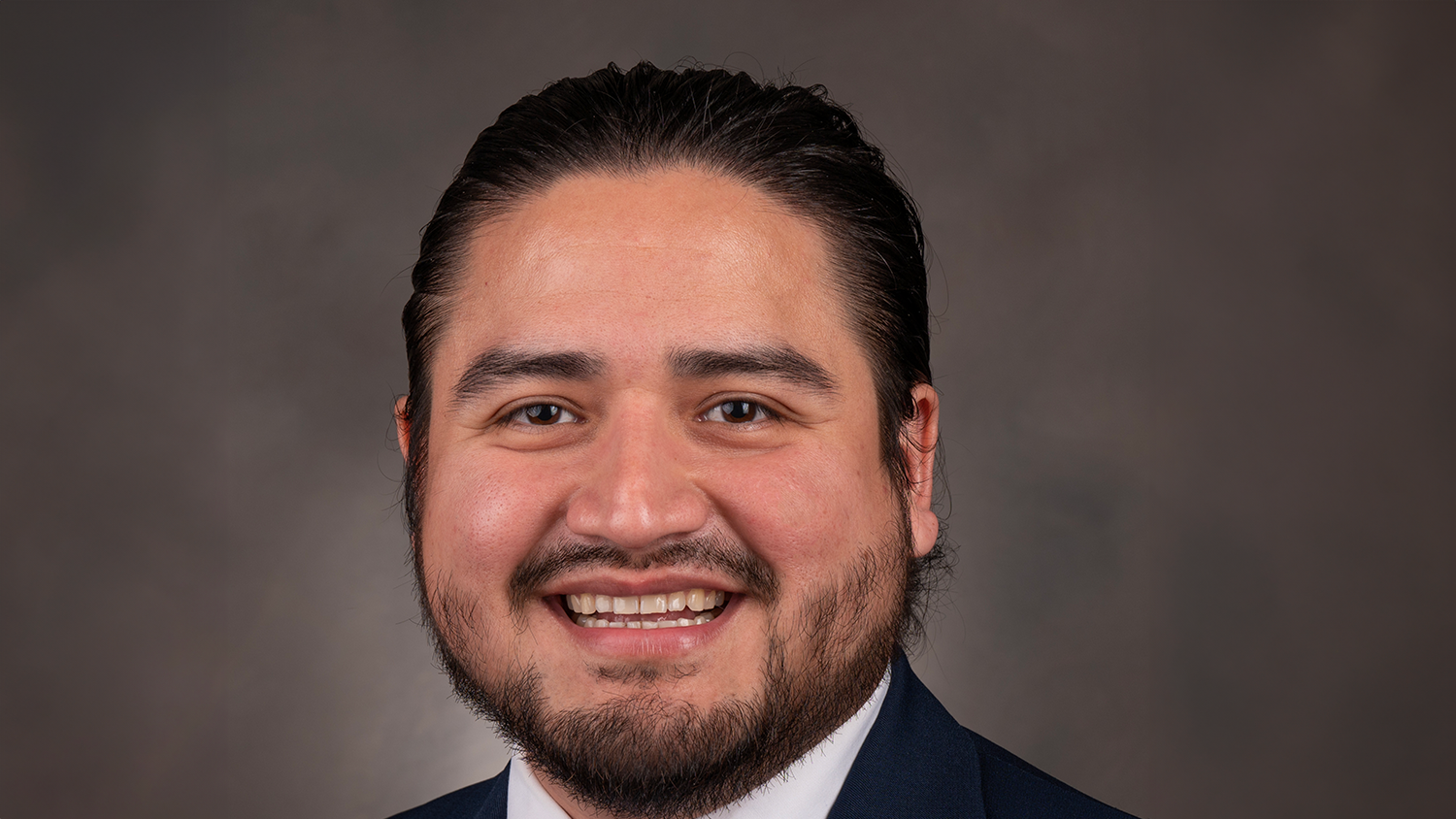Associate Professor DeLeon Gray Recognized in Thank a Teacher Program
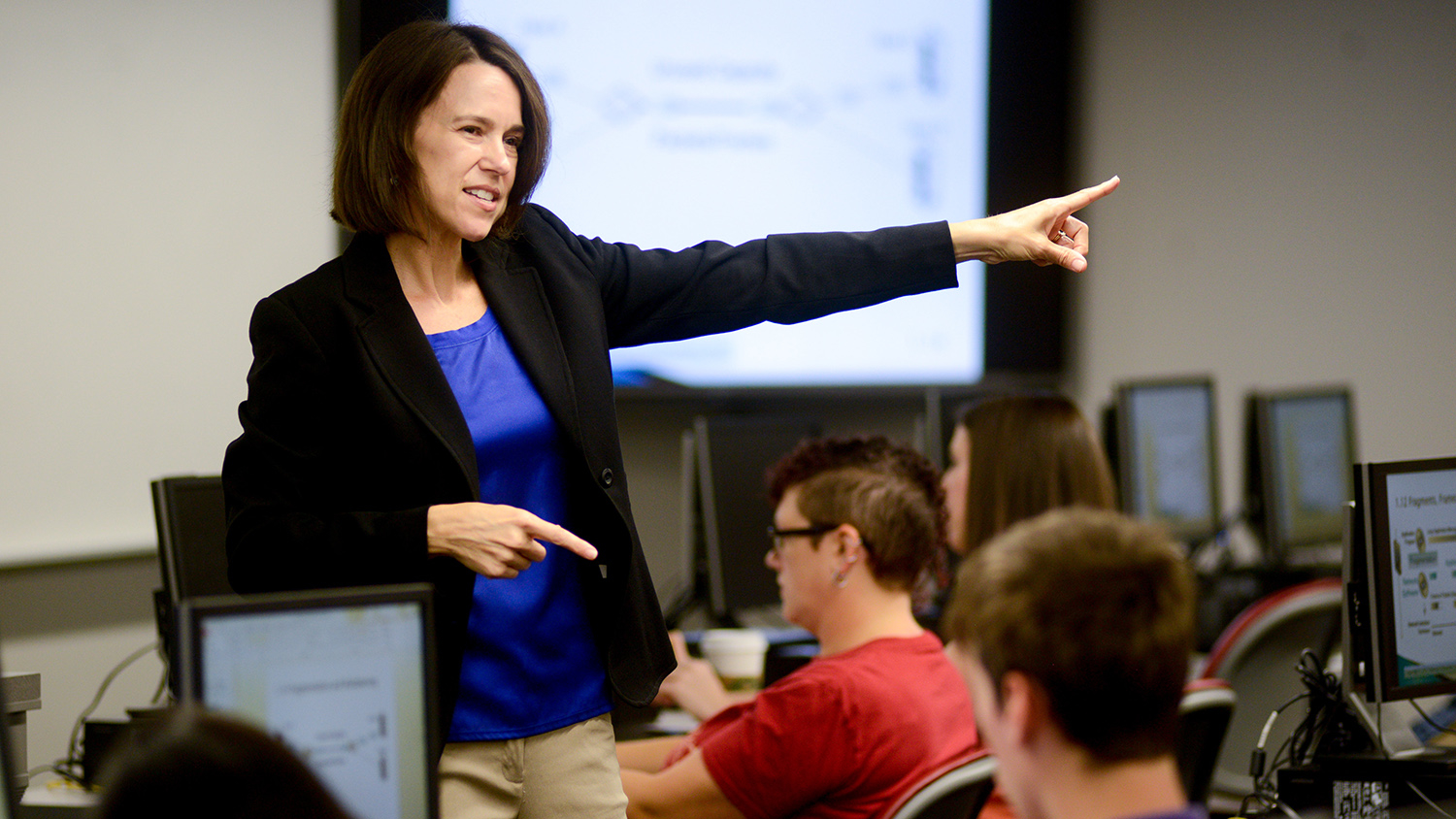
NC State faculty make a marked difference in the personal and academic lives of their students. In recognition of this commitment to holistic student success, the Office of Faculty Development started the Thank a Teacher program in 2010.
The program gives students an opportunity to thank professors who embody the university’s Think and Do spirit and greatly impact the campus through their teaching. Recipients of a Thank a Teacher honor also get recognition from the Executive Vice Chancellor and Provost, their deans and department heads. We spoke with a few recent Thank a Teacher recipients — DeLeon Gray, Maria Gallardo-Williams, Kyle Bunds and Shannon Pratt Phillips — and the students who nominated them.
Ashley Atkinson
Doctoral Student, Department of Teacher Education and Learning Sciences, College of Education
What class did you take with Dr. Gray?
ED 710 – Applied Quantitative Methods in Education I
Why did you nominate Dr. Gray?
I nominated Dr. Gray because he was able to teach Quant I — a class that is notoriously intimidating — and make it seem approachable. Dr. Gray celebrated every success and created an environment where students were comfortable attempting the difficult. He challenged us and provided just the right scaffolding to push our learning forward. The class felt like a community of learners that supported each other in a way I had never had in any other course.
What impact have they had on you academically?
I was very intimidated coming into my Quant I course, but Dr. Gray pushed us to dive into the data and examine it in ways that pushed my understanding of what “numbers” could show. Of course, I am better prepared to engage with quantitative research but I am also more critical what the numbers really show.
What impact have they had on you personally?
Dr. Gray is the type of professor I hope to be someday. The supportive environment he created through dialogue and encouragement is something I hope to emulate. Dr. Gray’s continual reflection and revision of the class based on feedback from his students set my goal for responsive teaching.
DeLeon Gray
Associate Professor, Department of Teacher Education and Learning Sciences, College of Education
 What does it mean to you to receive the Thank a Teacher recognition?
What does it mean to you to receive the Thank a Teacher recognition?
I’m very excited about this. It is an indication that students thought enough about their experience in class where they want to go above and beyond what is required of them to voluntarily share their experiences with others. It also represents the level of impact the students want to have on me, knowing how seriously I take the opportunity to teach. What’s been more remarkable for me is that I have been fortunate to receive this Thank a Teacher recognition every semester since starting at NC State in the fall of 2012. That level of consistent support and affirmation really speaks to students seeing something in my work. Even in the beginning, they could see that I was really trying and caring, It is meaningful seeing the time that is going into considering them during the planning phase, before, during or after class.
When and why did you decide to become a teacher?
I had a lot of great mentors in college, and one semester I wasn’t doing so well. One of my professors said the only way I could stay in her research class was if I was able to get a 4.0. At the time I earned a whopping 1.3 semester GPA. There was no way I could stay in her lab, but she gave me the option to try. She said that if I would try, she would give me what I needed to succeed. She gave me the key to her lab to do work, and the keys to the psychology building to get my studies done, and a couple of other key resources I really needed. At that point, I felt like I could do it. It wasn’t just me against my professors, it was my professor advocating for me and putting the ball in my court.
From then on, I realized the type of impact a professor could have. She changed my trajectory from being someone on the margins who probably could have gotten lost and graduated with no plan, to someone who got immediately into grad school with a fellowship. I also had the same type of experience with my graduate student mentor, who taught me that professors have the power to be meaningful allies for students. From then on, teaching and mentoring became something I saw as important to who I am and who I wanted to be. I want students to come to me and feel safe knowing that I will believe in them and support them and have high standards, but also give them affirmations that they’re headed in the right direction. They can do it because I did it.
What role do you feel high-quality instruction plays in student success?
When I think about the role of high-quality instruction, I think about the fact that we don’t always teach from a place where we expect students to be able to get what we’re teaching. Particularly in a class like quantitative methods or statistics, we just want to get through the class. We know students are sometimes taking the class because it is a requirement and they don’t necessarily want to be there. High-quality instruction suggests that there’s an expectation that I believe that the students are worth it.
When students rise to the occasion when they see the investment on your part. As an instructor, you are a leader, so if you want students to be successful, you want to lead them to success. You have to assume ownership of your position. When students tell you what they need more of, as a leader, it is your job to give that to them so they have what they need to be successful.
How do you want your students to remember you?
I want them to remember me as somebody who cares, and who sees them as real people. Students have needs — they come into college and grad school with a variety of background experiences. I really want them to know that I see them and their backgrounds as assets that position them to make unique contributions to society and research. I want to invite those perspectives into the classroom.
I want them to know that they are valued and society can benefit from them, no matter how much background they’ve had in a certain area of study. Just because of who they are, their thoughts can single-handedly change the way that we think about what we’re learning about in class and the way society thinks about how people develop, function and how they can thrive.
Evelyn Valentini
Senior, B.S. Environmental Sciences
What class did you take with Dr. Gallardo-Williams?
I took Introduction to Organic Chemistry with Dr. Gallardo-Williams.
Why did you nominate Dr. Gallardo-Williams?
I nominated Dr.Gallardo Williams because she made my experience attending this course memorable.
What impact have they had on you academically?
I am a non-traditional student. When I visited Dr. Gallardo-Williams in her office with questions about class material, she immediately understood that I needed a strategy and study plan to succeed in her course. She offered help, advice and suggestions on how to practice problems and make use of the tutoring lab, which I have followed and found to be very useful.
What impact have they had on you personally?
Dr. Gallardo-Williams is an incredible teacher. She believed in me and encouraged me to push my limits. I studied really hard — and she recognized it, which was uplifting — but If I excelled in her class it is only due to her teaching method. Her easy-to-approach personality, sense of humor and skills in explaining complex concepts in a manner easy to understand made me quickly build the type of confidence that got me an A (when I thought I could barely pass a course like this in the beginning). This experience not only boosted my confidence in general but also taught me skills and techniques of study that I am using in other classes and have good results. For all this I am grateful and I will always remember this course for the things I have learned and how I well I did!
Maria Gallardo-Williams
Teaching Associate Professor and Director Organic Chemistry Labs, Department of Chemistry, College of Sciences
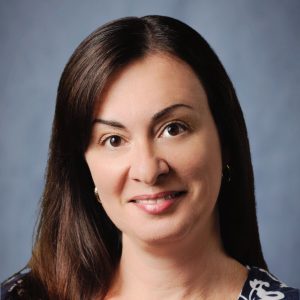 What does it mean to you to receive the Thank a Teacher recognition?
What does it mean to you to receive the Thank a Teacher recognition?
It means the world to me. To know that a student appreciates my efforts enough to write me a Thank a Teacher is the ultimate compliment.
When and why did you decide to become a teacher?
I always enjoyed explaining things to others, and especially science. I have always known that I would grow up to be a teacher.
What role do you feel high-quality instruction plays in student success?
I feel that my role as an instructor is to let students shine. Prepare the activities and class materials, and let them take those things and make them into instruments for their growth. I am constantly surprised by my students.
How do you want your students to remember you?
I want them to remember that I was fair to them, but also I had high expectations. Organic chemistry is not easy, but it can be very rewarding.
Benjamin Taylor ‘18
B.S. Sport Management
What do you want to say about Dr. Bunds’ impact?
Thank you so much for all of your work inside and outside the classroom! I fully appreciate all of the extra help you gave me and working with me to fulfill my requirements for the classes I took under you. I thoroughly enjoyed your personality and your style of teaching! You made class so enjoyable and worth going to.
Kyle Bunds
Assistant Professor, Department of Parks, Recreation and Tourism Management, College of Natural Resources
 What does it mean to you to receive the Thank a Teacher recognition?
What does it mean to you to receive the Thank a Teacher recognition?
As a faculty member, getting a Thank a Teacher letter means a lot, honestly. Sometimes you cannot really tell the impact that you are having on a student and you get overwhelmed with research commitments and deadlines. When you receive the feedback from students that they appreciate you, it really does make you feel great.
When and why did you decide to become a teacher?
That’s a tough one. For a long time, I thought I would work as an athletic director, but was always drawn to the idea of teaching. I coached while I was in high school and college, worked as a day camp counselor at the YMCA, mentored Special Olympics participants, and was a big brother with Big Brothers/Big Sisters. I had a lot of positive influences in my life, and I hope to be one for students through my teaching.
What role do you feel high-quality instruction plays in student success?
I think the key to “high-quality” lies within one’s ability to get the student to buy in, so to speak. Connecting with a student and letting them know you are there for them is an important aspect to high-quality teaching for me that maybe doesn’t fit the traditional rubric of what good teaching looks like. In that regard, I think high-quality teaching is about getting students interested in their own success. If you are able to do that, I think high-quality instruction plays a huge role. In this way, whether the student is self-directed or not, if you can get them to connect with the subject and see “the point” then I think it plays a huge role in student success.
How do you want your students to remember you?
I want students to remember that I care about them, that I am here for them, and that I make incredible dad jokes.
Katlyn Brown
Sophomore, B.S. Animal Science
What do you want to say about Dr. Pratt Phillips’ impact?
Thank you for being an enthusiastic professor! I cannot tell you how much I have learned even though I grew up around horses. Your class will definitely be something that I take with me throughout life. Again, thank you!
Shannon Pratt Phillips
Alumni Distinguished Undergraduate Professor, Department of Animal Science, College of Agriculture and Life Sciences
 What does it mean to you to receive the Thank a Teacher recognition?
What does it mean to you to receive the Thank a Teacher recognition?
I love the Thank a Teacher program — I love receiving the letters. It means a lot to know that I’ve touched a student enough that they want to say thanks!
When and why did you decide to become a teacher?
I became a teacher because I had such good teachers in both school and at university. They motivated me to learn and be successful in school and beyond and let me know I could do anything I wanted if I worked hard enough. Their passions for teaching and their subjects were inspiring enough for me to want to give back and become a teacher myself.
What role do you feel high-quality instruction plays in student success?
I think student success comes from both a student wanting it for themselves and the teacher supporting them and showing the way. When I teach — I’m excited to be there, to the point where sometimes I think the students wonder if I should decrease my caffeine intake. Having a thorough understanding of the material and being able to share that information in an interesting and fun way is so important to build that connection between the teacher, the students and the material.
How do you want your students to remember you?
I would ideally love my students to remember everything I taught them for 25+ years. But really — I just want them to remember how exciting it was to learn something cool about horses! I also think that I try to go beyond that — I give them optional homework and open-book quizzes — to try to show them that working on material outside of the classroom is more helpful to them than cramming before an exam. I want them to learn that if you just come to class and be prepared and present things will seem far easier, and to manage their time in the class and the library with some extracurricular fun is needed to keep sane and balanced. I also hope they remember me as the fun-loving, energetic horse-crazy professor!
This post was originally published in Provost's Office News.
- Categories:
